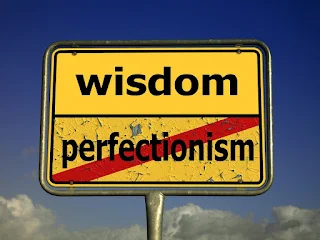Embracing Imperfection: Lessons Learned from 24 Years as an SLP
Way back in 2000, the year the world didn't end, phones got cameras, and I first started as an SLP. (Yes, I had a district laptop, but nothing on it.) I walked into the school, sat down at the therapy table with my group of kids, and expected that I would always have all the answers. I felt like I was a failure if I didn't, after all, I had that fancy M.S. saying I did. And you know, of course I didn't, young thing that I was.And if I didn't have all the answers, well, by no means let the kids know, right?!! Because then they'd take
advantage. They would run amok! Gone would be any control I'd have over therapy sessions.
It's been 24 years, ya'll. I don't have all the answers. Sorry to disappoint. LOL. Seems I've got fewer answers each year! And you know what else? Not only am I not a failure, not only do the kids not run amok, but it seems to increase our rapport when I admit I don't know something or show them a flaw.
For example, I have more stutterers this year than I've ever had before. I also have recently suffered Post Concussive Disorder, which seems to have increased my "normal" stuttering. So I have gotten into the habit of pointing out my repeated sounds and words to my students. I just shrug and say, "Look, there I stuttered again." As if it was a hiccup. Because, really, that pretty much describes what it feels like for me. Take a moment and imagine how that would affect a middle school stutterer. Maybe show them this TedxTalk video, about "The Power of a Stutter."
Or maybe I have a question that they don't answer correctly. Sometimes I realize I didn't ask it well - and I tell them that. Sure, I'm an adult, and I may know more than they do, but I'm not infallible, and they need to see me admit that with grace and humor. Have you ever tried to work with someone who can't admit that they were wrong? Or tried to have a relationship with one? I'm showing these kids they can admit they made an error with no judgement.
This goes far beyond the new-fangled concept of ableism. Not that I'm not behind that idea 100%! I fully support the idea of not trying to change things that are simply the way people are made. This is the idea of teaching children that it is ok not to be perfect. Some may call it Growth Mindset, some may call it resilience...there are many names for it. It's been recycled through the years. Why? Because we have tried to reach perfection from the dawn of history.For years, I chased the elusive notion of perfection as an SLP, only to realize it hindered my connection
with my students. I was so preoccupied with being flawless that I forgot to truly engage during out sessions. If I wasn't engaged, then my students sure weren't! And what life lessons were they learning? That they weren't good enough the way they were? That mistakes were bad?Each time I make a mistake, and show my students how to accept it with grace, I am teaching them that they don't have to be perfect. Giving them resilience so that their inevitable mistakes don't push them down. That they can work to be better, but that they are wonderful the way they are. You know why AI
generated people always look weird - it's because they are too perfect! We need our little idiosyncrasies!So, forget about achieving 100 speech goals. What truly matters is nurturing a culture of acceptance and growth—one mistake at a time. After all, isn't that the greatest lesson of all?






.png)





Comments